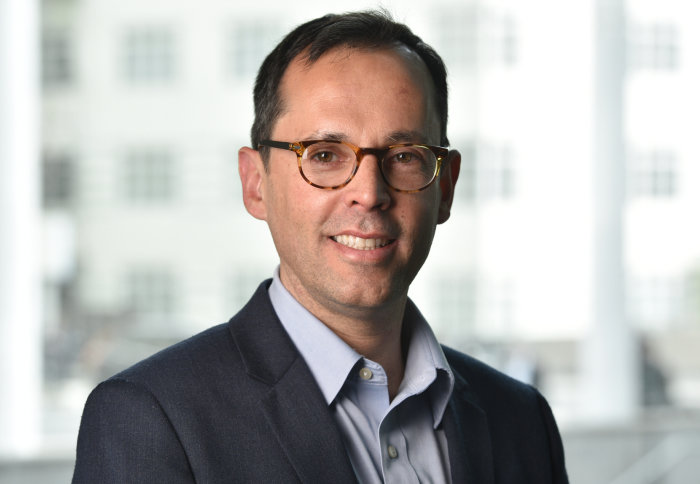Royal Academy of Engineering announces latest Research Chair appointments
by Sara West

Professor Joao Cabral, Department of Chemical Engineering
Professor Joao Cabral has been appointed Research Chair in Soft Matter Microflow Engineering.
The Royal Academic of Engineering (RAEng) has announced funding for three leading engineers to tackle major industry challenges. The Academy's Research Chairs and Senior Fellowships scheme aims to strengthen links between industry and academia by supporting exceptional academics in UK universities to undertake research with industrial partners.
"Our partnership offers terrific possibilities to engage with customers, accessing samples and insight into their practical use and real-life performance." Professor Joao Cabral Department of Chemical Engineering
Professor Joao Cabral from Imperial College London has been named Procter & Gamble/Royal Academy of Engineering Research Chair in Soft Matter Microflow Engineering. His research focuses on soft materials which are used in industrial applications, including polymers, gels, colloids, emulsions, foams, surfactant assemblies and liquid crystals.
Industry uses soft materials in several sectors, such as personal care, home, food, oil and lubricants, coatings, agri-chemical and pharmaceutical. The current UK annual footprint of chemical and process industries is around £180 billion and set to grow.
Professor Cabral's work involves creating processes which can encourage soft materials to spontaneously assemble into complex structures. This could involve the use of flow, light, or heat. One of his aims is to address current challenges with water scarcity and sustainability and achieve a step-change in predictive research and engineering to enable the use of greener chemistry and lower energy processes.
He commented: “Procter & Gamble bring with them 180 years of valuable history and unique consumer understanding and extensive research, enabling us to build on strong foundations and focus. Our partnership offers terrific possibilities to engage with customers, accessing samples and insight into their practical use and real-life performance. We would never be able to carry out such statistically rigorous and impactful studies without their support. It will also be fun to engage with people, from precision molecular engineering all the way to customer perception.”
Article text (excluding photos or graphics) © Imperial College London.
Photos and graphics subject to third party copyright used with permission or © Imperial College London.
Reporter
Sara West
Communications Division